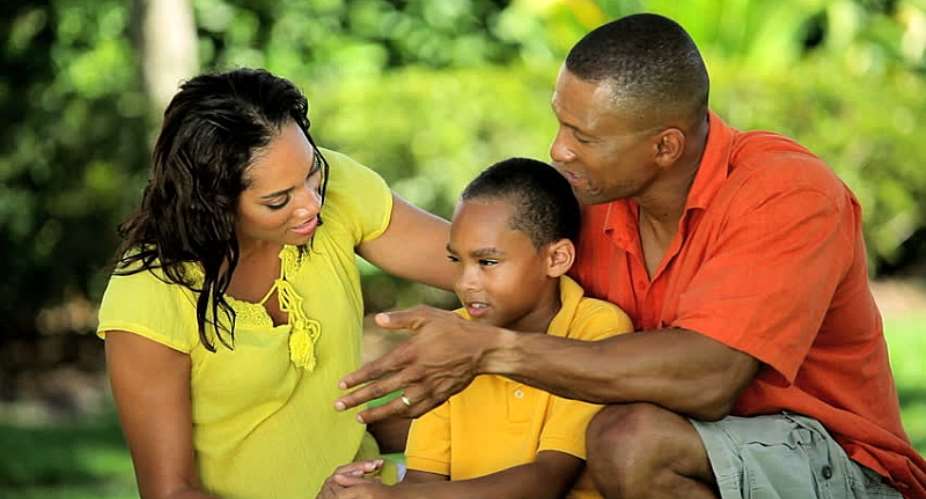How do you help when your child is scared to go down the slide by themselves? Or won’t play with other kids at the playground? Or sobs uncontrollably at the thought of you leaving them in their Sunday school classroom? Or won’t stay in bed during a thunderstorm?
Fear comes in so many shapes and sizes, but there is a common underlying theme. In each instance, fearful kids perceive a threat to something that’s important to them—fitting in, being accepted, looking competent, feeling their world is predictable, staying unharmed, having pleasant experiences. So to safeguard what they want, they shrink back from life rather than embrace something new or untried.
This reaction can be frustrating to a parent, since it’s hard to help your child do something well when they refuse to even try. It’s even more frustrating when their reaction becomes a patterned way of life.
Life of Fear
Fear has a way of generating a strategy that reinforces itself. The unspoken logic of fearful kids goes something like this: If I don’t try anything new, then nothing bad can happen to me. Oh look! I just did nothing and I’m still okay. My approach to life is working; therefore, I will continue not trying.
This is when you realize your goal as a parent isn’t to eradicate bad behavior in one small area of life. Instead, you have to help them realize that something bad is happening to them by not trying—they’re stunting their growth and development as a human being. They’re consigning themselves to a small world when they were made to rule over and care for a large one. Fear is costing them their potential as of God’s image-bearers.
Helping Fearful Kids Overcome
First, please don’t tell them that there’s nothing to be afraid of. They know better. They know that they might fail or get hurt. Telling them there’s nothing to fear will only convince them that they understand the world better than you do. If they think you see less than they do, you’ll only convince them that you have nothing to offer.
Instead, acknowledge that they’re scared and either ask or guess what frightens them. Then, to the extent that you can, tell them that you get it. Let them know you understand why that’s scary for them. At the same time, though, remind them they’re not alone. Tell them you’re there with them and they don’t have to fight their fear all by themselves.
Share that you know what it’s like to be afraid. Can you recall a time when you were scared of the same thing or something similar? Use your experience to forge a connection.
Patience in the Struggle
Are you sensing that this process will take lots of patient, and potentially frustrating, conversations? Parenting is so much more than simply identifying where our children are struggling. It’s also the commitment to find a million ways over the years to say, “I’m here for you. I love you and, because I love you, you can’t stay where you are. But we’ll go together.”
What keeps you hopeful and engaged with fearful kids when you realize that unraveling fear is a process that can take years, not hours? For me it’s the realization that I haven’t had to be more patient with any of my three children than Jesus has been, and continues to be, with me.





 "I can now see clearly with my two eyes, thanks to the generosity of Afenyo-Mark...
"I can now see clearly with my two eyes, thanks to the generosity of Afenyo-Mark...
 Amansie Central: Violent rainstorm causes havoc at Jacobu; one dead
Amansie Central: Violent rainstorm causes havoc at Jacobu; one dead
 Renaming Ho Technical University after Ephraim Amu is illegal – Minority slams g...
Renaming Ho Technical University after Ephraim Amu is illegal – Minority slams g...
 Gomoa Akotsi: Truck crashes into police vehicle, one dead, several officers inju...
Gomoa Akotsi: Truck crashes into police vehicle, one dead, several officers inju...
 Election 2024: Power outages will affect NPP – Political scientist
Election 2024: Power outages will affect NPP – Political scientist
 NPP is 'a laughing stock' for luring 'poster-stickers', 'noisemaking babies' wit...
NPP is 'a laughing stock' for luring 'poster-stickers', 'noisemaking babies' wit...
 Dumsor: Matthew Opoku Prempeh must be removed over power crisis – IES
Dumsor: Matthew Opoku Prempeh must be removed over power crisis – IES
 PAC orders WA East DCE to process requests from their MP
PAC orders WA East DCE to process requests from their MP
 Defectors who ditched Alan’s Movement to rejoin NPP were financially induced – A...
Defectors who ditched Alan’s Movement to rejoin NPP were financially induced – A...
 Dumsor: Akufo-Addo has taken Ghanaians for granted, let’s organise a vigil – Yvo...
Dumsor: Akufo-Addo has taken Ghanaians for granted, let’s organise a vigil – Yvo...
